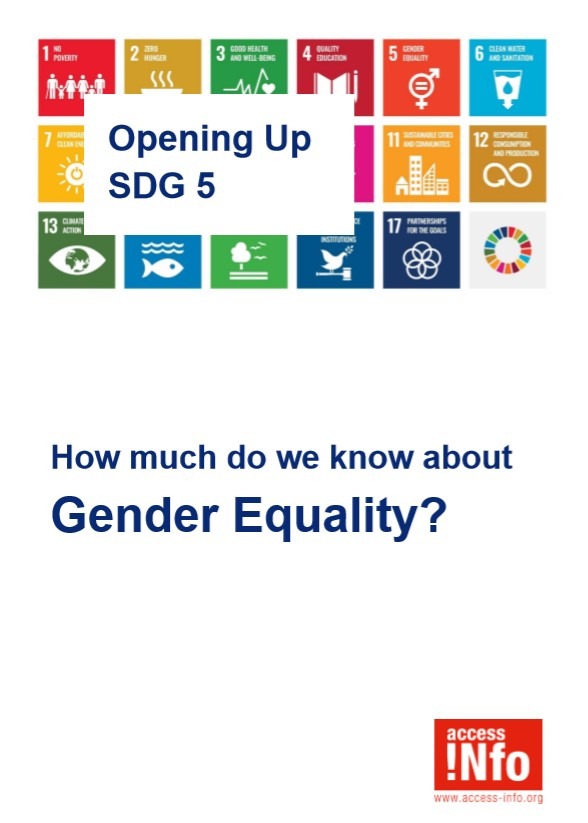This report was originally published in March 2020 and later updated in July 2020.
27 March 2020- Across Europe governments are failing to make public data on gender equality, research by Access Info Europe has found, making it impossible for citizens to track national progress on Sustainable Development Goal indicators on reducing discrimination and violence against women, and on securing equality in education, employment, and political participation.
The report “Opening Up SDG 5: What do we know about Gender Equality?” shows that for seven countries – Austria, Croatia, France, Germany, Hungary, Spain and the United Kingdom – on average little more than half (57%) of the gender-related data is published. The highest level of reporting was found in the UK (96%), and the lowest in Croatia (32%).
Helen Darbishire, Executive Director of Access Info said: “It is of serious concern that governments are failing to make public key data sets such as those on violence against women.”
“Another concern is that some SDG indicators have been classified by as ‘not relevant’, such as that on female genital mutilation, which Eurostat has excluded from its data set even though it is estimated that as many as 600,000 women in Europe are affected by this illegal practice,” added Darbishire.
Access Info researcher Marta Morcuende, who coordinated the study, noted that government websites do not give explanations: “It is not clear whether data is missing because it is not collected, or if governments simply have not yet published all the data that they have. Either way, it is important that immediate steps are taken to rectify this situation.”
Another finding of the Access Info study is that the lack of common international standards for how countries should report SDG data is also reflected in the wide variety of formats and platforms for publication. Some countries, such as Germany and the UK, have deployed the user-friendly open source platform called Open SDG, which permits data visualisations and makes the data easy to explore. Others such as Spain still have data in rather old-fashioned statistical websites, while Croatia has no centralised platform for reporting SDG data, making the data hard to find.
Key Recommendations
In order to improve the quality and quantity of data available on SDG 5, Access Info recommends that:
- Every country publish the full set of data for all 231 SDGs, fully aligned with the UN indicators;
- Publication should be on dedicated websites that are easy for all members of the public to find, and which are user-friendly and easy to understand;
- Data should be available in open-source, machine-readable format in line with the Open Data Charter principles, and there should be no limits on reuse.
- Every country should have a law or policy requiring collection and publication of all SDG data;
- Eurostat, the EU statistics agency, should compile and publish data related to all of the SDG indicators;
- The UN and the international community should adopt guidelines for countries on how to publish SDG data;
- UNESCO should measure SDG data publication as part of measuring the right of access to information indicator for SDG 16.10.2.

